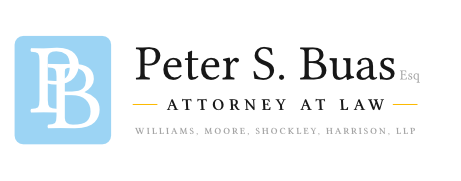Estate planning is one of the most valuable steps you can take to protect your assets, provide for loved ones, and ensure your wishes are carried out. Without a proper plan, families may face confusion, delays, and costly legal disputes. This guide covers the essential components of an effective estate plan and explains how each element contributes to your long-term security and peace of mind.
Why Estate Planning Matters
Many people assume estate planning is only for the wealthy, but everyone benefits from having clear documents in place. An estate plan allows you to:
Decide how your property and assets will be distributed
Minimize taxes and legal complications for heirs
Appoint decision-makers for financial and medical matters
Protect minor children by naming guardians
Avoid unnecessary court involvement through probate
By taking time to plan, you provide clarity and stability for your family when they need it most.
Wills: The Foundation of Every Estate Plan
A will is a legally binding document that outlines how your assets should be distributed after death. It also allows you to name an executor who ensures your instructions are followed.
Key benefits of a will:
Directs distribution of property, money, and personal belongings
Allows you to appoint guardians for minor children
Provides peace of mind that your wishes are legally recognized
Without a will, the state decides how your estate is divided, which may not reflect your preferences.
Trusts: Flexible Planning Options
A trust is another important estate planning tool that can manage how assets are handled both during your lifetime and after death. Trusts are particularly useful for individuals who want privacy, tax advantages, or to avoid probate.
Common types of trusts:
Revocable Living Trust – Allows you to maintain control of assets during your lifetime and transfer them smoothly after death.
Irrevocable Trust – Transfers assets permanently, often for tax or asset protection purposes.
Special Needs Trust – Provides for a disabled loved one without jeopardizing government benefits.
Trusts can be tailored to specific goals, offering greater flexibility than a will alone.
Powers of Attorney: Financial & Medical Explained
A power of attorney (POA) gives someone you trust the authority to act on your behalf if you are unable to manage your own affairs.
Types of powers of attorney:
Financial POA – Authorizes someone to handle banking, investments, and legal matters.
Medical POA – Appoints a decision-maker for healthcare choices if you are incapacitated.
Having these documents ensures continuity and prevents court intervention during unexpected events.
Advance Medical Directives
Also called living wills, advance medical directives allow you to express your preferences for healthcare and end-of-life treatment. This document helps guide doctors and family members in making difficult decisions.
Typical provisions include:
Choices regarding life support and resuscitation
Pain management preferences
Organ donation wishes
By putting your instructions in writing, you relieve loved ones of making stressful choices on your behalf.
Beneficiary Designations
Certain assets, such as retirement accounts and life insurance policies, transfer directly to beneficiaries outside of probate. Keeping beneficiary designations updated is an essential part of estate planning.
Common mistakes to avoid:
Failing to update beneficiaries after marriage, divorce, or births
Leaving beneficiaries blank, which can cause delays and disputes
Naming minors without setting up a trust or guardian arrangement
Reviewing these designations regularly ensures your assets go to the right people.
Planning for Minor Children
If you have children under 18, estate planning becomes even more important. A will allows you to designate guardians who will care for your children if you cannot. You can also establish trusts to manage inheritance until they reach adulthood.
This step prevents court involvement and ensures your children are raised and supported according to your values.
Business Succession Planning
For business owners, estate planning must also consider what happens to the business in the future. Succession planning allows you to identify who will manage or inherit the business, reducing the risk of disruption.
Options may include transferring ownership to family, selling to partners, or creating a buy-sell agreement. Without planning, businesses may face instability or forced liquidation.
Estate Taxes and Financial Considerations
Maryland is one of the few states with its own estate tax, in addition to federal estate tax rules. Strategic planning with wills, trusts, and gifting can minimize these taxes and preserve wealth for heirs.
Professional guidance ensures your plan addresses both state and federal obligations, preventing surprises for your family.
Steps to Start Your Estate Plan
Take inventory of all assets and liabilities
Decide who should inherit property and in what proportions
Select guardians for children, if applicable
Appoint trusted individuals as executor, trustee, or agent under POA
Draft and sign key documents with the help of an attorney
Review and update your plan regularly as life circumstances change
Professional Guidance Makes the Difference
While online forms and templates exist, estate planning is not a one-size-fits-all process. Each person’s situation is unique, and mistakes can lead to costly disputes or unintended results. Working with an experienced estate planning attorney ensures your documents are valid, comprehensive, and tailored to your needs.
Conclusion
Estate planning provides clarity, security, and peace of mind for you and your loved ones. From wills and trusts to powers of attorney and healthcare directives, each document plays a role in protecting your legacy. By taking action now, you create a roadmap that safeguards your family and preserves your wishes for the future.
